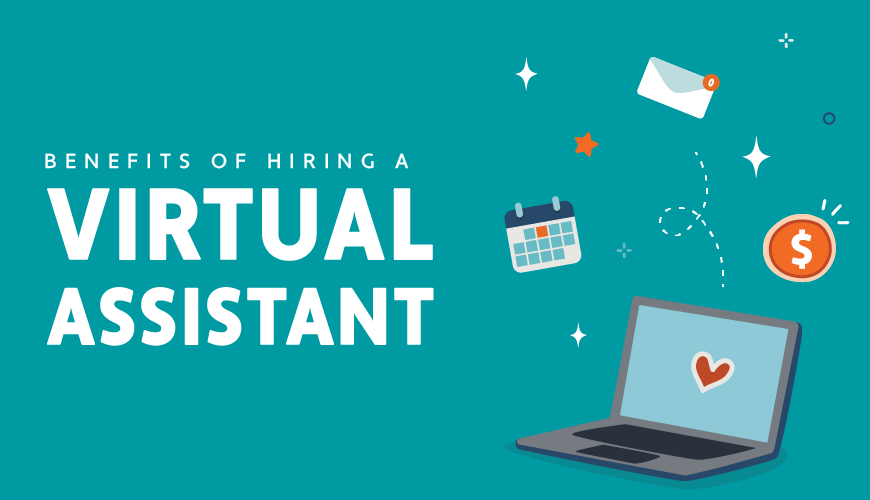As businesses grow and operational demands rise, virtual assistants (VAs) have emerged as a practical and cost-effective solution. Whether you are an entrepreneur looking to streamline your workflow or a small business owner wanting to reduce overhead costs, hiring a virtual assistant can be a game-changer. However, choosing the right virtual assistant services requires careful evaluation to ensure alignment with your business needs.
In the increasingly competitive landscape of remote talent, identifying the best fit is more than just comparing hourly rates. You must assess their skill sets, communication abilities, reliability, and how well they integrate into your processes. For companies seeking to optimize efficiency and delegate non-core tasks, evaluating a Virtual Assistant Services provider like this one can be a valuable starting point in finding the right match.
Let’s break down the critical factors to consider before hiring a virtual assistant.
1. Identify Your Business Needs
Before evaluating any service provider, clearly outline what tasks you want to delegate. Common areas include email management, calendar scheduling, social media handling, data entry, bookkeeping, research, and customer support. Determining your business’s pain points helps narrow down the specific expertise you require.
Ask yourself:
- Are the tasks recurring or project-based?
- Do you need industry-specific knowledge?
- Will the VA interact directly with clients?
This clarity will not only guide your hiring decision but also ensure you create a suitable onboarding and training plan.
2. Assess Skills and Experience
Once you define your requirements, examine whether the virtual assistant has the necessary skills and relevant experience. A seasoned VA will typically have a portfolio or list of past clients and completed tasks. Depending on the services you need, assess their proficiency in software tools such as Microsoft Office, Google Workspace, CRM systems, project management tools (Trello, Asana), or niche tools specific to your business.
Request samples of their work or conduct a skills test to evaluate their competence. Experience in your industry, even if limited, can be a strong advantage.
3. Communication and Responsiveness
Effective communication is critical when working remotely. Evaluate how promptly and professionally a VA responds during the initial inquiry phase. Pay attention to their language proficiency, clarity in writing, and ability to follow instructions.
Consider scheduling a short video or phone interview to gauge verbal communication and assess whether their communication style suits your business culture. Also, clarify the expected turnaround time for tasks and availability during your working hours.
4. Check Reviews, Testimonials, or References
Online reviews and testimonials from previous clients provide insights into the VA’s reliability, professionalism, and quality of work. Look for feedback on performance, punctuality, and consistency. If the platform allows, reach out to previous clients directly to ask about their experience.
Additionally, request at least two references from the virtual assistant or the agency offering the services. Speaking directly with someone who has previously worked with the VA gives you a better sense of what to expect.
5. Data Security and Confidentiality
If your virtual assistant will be handling sensitive company data, ensure they understand and adhere to data security practices. Ask about the tools they use to protect your data and whether they are open to signing a non-disclosure agreement (NDA). For financial, legal, or HR-related tasks, data protection becomes even more essential.
A reputable service provider should have protocols in place for safeguarding client information and complying with data privacy regulations.
6. Cost and Payment Terms
While affordability is a major advantage of hiring virtual assistants, don’t base your decision on cost alone. Compare the value you get with the price you pay. Clarify:
- Are you billed hourly, weekly, or monthly?
- Are there any setup fees or long-term contracts?
- What happens if the VA is unavailable?
Transparency in pricing and flexible payment terms reflect the professionalism of the service provider.
7. Trial Period or Test Project
Before committing to a long-term contract, propose a trial period or a small test project. This allows you to evaluate how well the virtual assistant understands your instructions, delivers quality work, and manages deadlines. It also helps them assess whether your business is the right fit for their services.
Use this period to test their adaptability and how quickly they learn your processes.
Final Thoughts
Hiring a virtual assistant can significantly improve productivity, reduce operational costs, and give you more time to focus on strategic goals. However, success hinges on thorough evaluation and alignment with your business needs. By assessing skills, communication, security, and professionalism, you can confidently select a virtual assistant who brings lasting value to your team.
Take the time to evaluate your options carefully, and you’ll find that the right virtual assistant service can be a reliable extension of your business operations.

